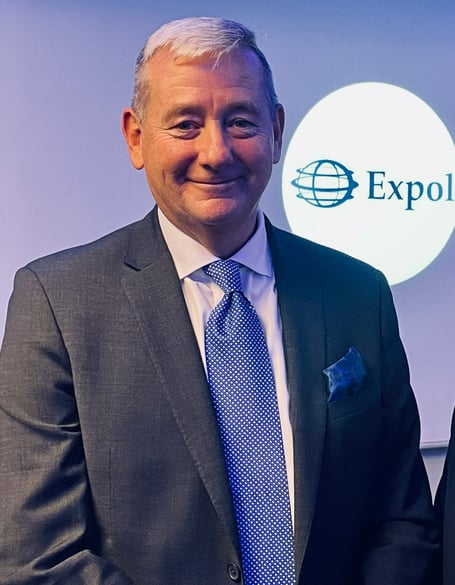In October next year MONEYVAL, the Council of Europe’s anti-money laundering watchdog, will be carrying out an onsite evaluation to assess whether the island’s legislation, policies and procedures continue to meet international standards.
This means that there is now a renewed focus on anti-money laundering (AML) training for businesses. In this article Rob Kinrade, chief executive of AML training experts, Expol, looks at the key issues for business owners and managers to consider.
MONEYVAL evaluations are always important to ensure the island retains its reputation as a robust, well-regulated, international business centre. But several factors make next year’s assessment even more significant.
The Isle of Man’s last MONEYVAL evaluation was in 2016, with enhanced follow up in 2018. European and international standards regarding AML and CFT (Countering the Financing of Terrorism) have changed significantly since then, so the evaluation next year will be the first time assessors have looked in minute detail at how the island’s regulations and procedures have evolved to keep pace.
Crown Dependencies context
Within the past year MONEYVAL has reported its evaluations of Jersey and Guernsey with the assessments for both Crown Dependencies, on the whole, being positive.
This puts a little more pressure on the island to achieve an assessment that’s on a par with or better than these competitor jurisdictions.
Pressure has been increased further by the Isle of Man’s image as a leading international business centre being tarnished to a degree in the past 12 months by negative headlines about businesses failing to follow best practice regarding anti-money laundering protocols.
MONEYVAL evaluators have the power to ‘grey list’ jurisdictions and such outcomes can have a serious and long-term economic impact, so there is no room for complacency.
On the positive side, the Isle of Man Government is taking the lead to ensure that the public and private sector – plus the wider community – understand the importance of MONEYVAL.
In July this year, the government published its first standalone Terrorist Financing National Risk Assessment which was a significant step forward in strengthening the island’s level of protection against terrorist financing.
It’s also relevant to MONEYVAL because it’s an important element in the strategy to meet Financial Action Task Force (FATF) recommendations.
In February last year Deputy Chief Minister and AML/CFT lead for the Isle of Man Government Jane Poole-Wilson MHK, made it clear that the government needs private sector collaboration and support.
What are businesses doing?
There are many things that businesses are, or should, be doing to provide support, the most important being to ensure their processes, procedures and people are up to speed with the highest standards of AML and CFT knowledge and training.
While many firms invest in AML training – especially for Money Laundering Reporting Officers (MLROs) – in the countdown to the MONEYVAL evaluation some are choosing to go a step further with advanced levels of training.
This high level of continual training and professional development is becoming increasingly important because the regulatory landscape is constantly evolving.
One recent example is a warning to companies issued by the Isle of Man’s Gambling Supervision Commission (GSC) about engaging with clients in some countries regarded as being a significant risk. Since then Expol has been very busy with enquiries from local CSPs, gaming companies and other related businesses wanting to carry out enhanced due diligence on existing clients from those countries.
Summing up
Everyone who has an interest in the island’s future prosperity as an international business centre – especially for financial services and gaming – has a duty to play a part in helping to ensure the island achieves a positive MONEYVAL evaluation.
While many businesses have preparations well under way, others are playing catch-up. In this context, sharing knowledge and best practice across the public and private sectors will be a great asset in the months ahead.




